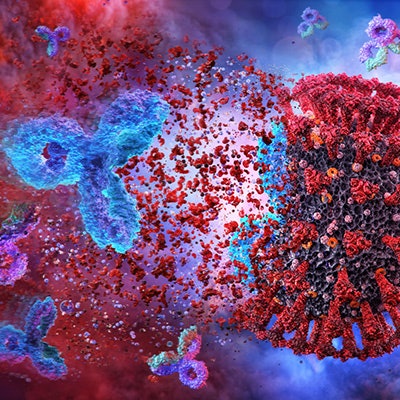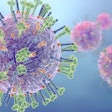
The University of California, Irvine (UCI) has developed a low-cost lab-on-a-chip test called TinyArray that may be available for rapid COVID-19 diagnostic and antibody testing throughout the U.S. by the end of the year.
Developed by a research group spearheaded by Weian Zhao, PhD, the test uses blood from a finger-prick to probe hundreds of antibody responses to 14 respiratory viruses, including SARS-CoV-2, in two to four hours. Doing so could keep hospitals clear of patients with standard colds and flus.
The results are printed on the TinyArray imager, which combines a 3D-printed prototype with an off-the-shelf light-emitting diode (LED) and small 5-MP camera to find markers for many antibodies simultaneously. The platform has the accuracy of more expensive systems but is portable and costs only $200. Typically, similar systems that test for the full range of antibodies cost $10,000 to $100,000 and are too bulky for widespread use.
TinyArray can also process the results of nose swab tests for SARS-CoV-2 so that patients can be tested for COVID-19 and its antibodies on a single platform.
Zhao, a professor of pharmaceutical sciences at UCI, and colleagues, have already completed 5,000 tests in Orange County, with the final goal to test 20,000 samples per unit a day. UCI startups Velox Biosystems and Nanommune are partnering with the UCI research team to scale up production. They expect the TinyArray imager will be ready to ship nationwide by the end of the year and are working with scientists in Uruguay, Russia, and Thailand to develop similar systems.



















